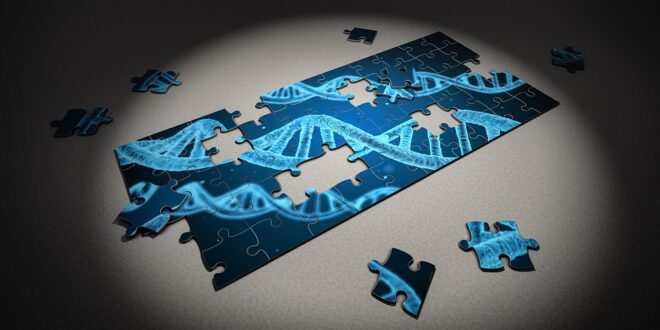The Science of Genetics: 10 Things You Need to Know
Genes are an essential component of living organisms, from simple bacteria to complex human beings. They carry the DNA sequences that determine our traits and characteristics – from eye color to disease susceptibility. With advancements in technology and scientific methods, researchers have increasingly been delving into the depths of genetic sequences to decipher the mysteries of our genes. Here, we present ten key pieces of information that will help you unravel the mystery of genes.
1. Genes Determine Everything About Us
At the core of all living things, genes dictate what we look like and how we behave. They not only control physical traits but also our risk of inherited diseases and how we respond to medications. Researchers have found that genetics plays a role in a broad range of traits, including vulnerability to depression and even the tendency to take risks in everyday life.
2. Every Living Organism Has Genes
From the smallest living things such as bacteria, to plants, to complex mammals – every living organism is composed of genes. Genes have been part of evolution long before living organisms became diversified and evolved into the different beings we see today. Scientists have observed a link between organisms with the more complex structures (such as human beings) and possessing more complex sets of genes.
3. Genes Change Due to Environment
Our environment can impact the expression of our genes. A leading example of this is cancer, which can occur when energy imbalance due to poor lifestyle choices and high levels of stress can cause genetic mutations to accumulate over time. Alternatively, in cases with HIV medications, if patients adhere strictly to weight-loss diets they tend to have a greater degree of metabolism of the antiretroviral medication in their bodies leading to its sudden onset which can affect their health.
4. Genetic Mutations can be Harmful or Beneficial
Genetic mutations arise when the genetic code has mistakes. These can occur spontaneously or can happen when the biological copy machine (i.e., DNA polymerase) makes errors. Some mutations can be beneficial: for example, causing resistance to pesticides, while others can be harmful, leading to the synthesis of incorrect proteins, interfering with protein function, and leading to inherited disease.
5. Genetics is not Always Passed Down in Bloodlines
Some modifications can occur after birth or throughout your life due to the environment or lifestyle choices (e.g., exercise, stress, and nutrition). Finally, in complex genetic diseases, mutations can occur spontaneously and do not always involve inherited traits. In these cases, the mutation may just occur by chance causing an aberration, or whilst underscoring a genetic link between family members, largely occurring because of the way genetic systems work, and pass thousands of generations both backwards and forward.
6. Genetic Testing Comes with Advantages and Disadvantages
On the one hand, genetic testing can be life-saving by detecting genetic risks of inherited illnesses and allowing healthcare providers to help alleviate or prevent complications. Moreover, it can help prevent the unseen transmission of problem genes into many other generations into the future. On the other hand – genetic testing can also create anxiety about something that remains mostly untreatable, lead to financial setback, to over or under-notification of diagnosis as well stigmatization from identified genetic travelers. Thus while providing vital information, genetic testing can come with its obstacles.
7. Genetic Modification is Potential: CRISPR
Several teams of researchers are already using CRISPR-Cas, one of which did create a genomic first when they accidentally generated mutations in human embryos. However, a consensual barrier still exists that should prevent genetically modified people from being brought into life. Once this barrier has implicitly or explicitly crossed; however, CRISPR offers the capacity to eradicate many diseases and only introduce desired attributes like having unique eyes or wealthy intelligence levels.
8. Humans Share Genes
In a sense, genetic variation refers to perhaps sixty percentile of the genome whereas approximate others 20% are ancient remnants from lateral acquisition through bacterial means that this were passed via bacteria through the countless generations into human genetic patterns, jointly shared by people all across the world. But for the obvious genetic connection between cousins or even more closely with direct family members, once can approach other people’s gene results from virtually near or afar.
9. Epigenetics Targets Genetic Expression
In a sense not to be confused with genetic engineering, and independent of regular genetic sequence, epigenetics functions in the focus of silencing or permitting regions of genomes for expression. Developmentally influenced by influences from initial conception to just after premature birth Epigenetic by excluding entire parts of the gene that becomes deleted from the sequence permanently and influencing the unaltered sequence markup which causes protein expression differently.
10. Successes Define Differences-From Knowing to Doing
In analyzing human genes today, researchers can observe genes key to a cumulative ailment encountered in the future, improving their discovery of treatments and healthcare availability via information accrued on personal genetics. Physicians should always factor genetics when decisions are made about interventions, patient diagnosis as genetics can result in sharp distinctions between individuals even with similar age and birth locations. Thus, genes – ever-changing- define and distinct us from one another and place upon each of us differing lengths of attention from notable talent achievements and inheritable traits albeit positives or negatives passed down to ourselves wherever, life leads.
 Mind Uncharted Explore. Discover. Learn.
Mind Uncharted Explore. Discover. Learn.




